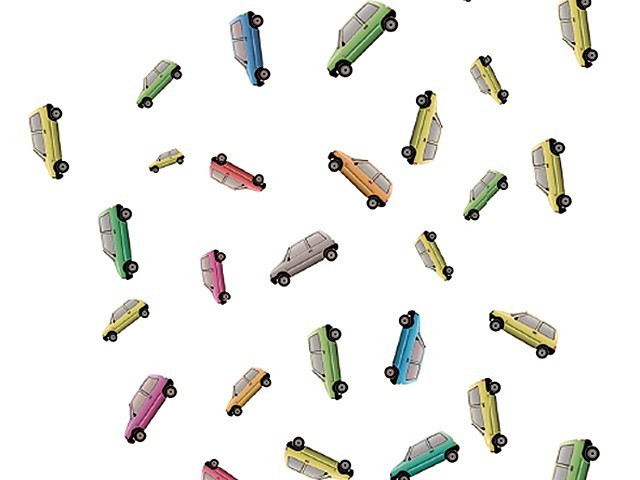Excise and taxation: Car dealers protest at new registration procedures
Say new policy creates more hassle for buyers and sellers.

Car dealers have protested at new car registration procedures and documentation introduced by the Excise and Taxation Department, saying they create more hassles for buyers and sellers.
Rizwan Goraya, press secretary of the Jail Road Traders Association, told The Express Tribune that the association had lodged a protest against the new registration policy with the Excise and Taxation director general.
On July 1, the department introduced new passport-size booklets for car registration with special security features, to replace the one-page registration papers used previously. Buyers and sellers of cars will need to get the new booklets. People not intending to sell their cars can continue to pay the yearly token fee on the old registration papers.
Car dealers said that the new registration booklet, which costs Rs500, had an expiry date, unlike the old papers. Further, the booklet expires five years from the date that the car was registered, rather than the date the booklet was issued. That would mean, for example, that the owner of a car registered in 2008 for which a new booklet is issued this year would need to obtain another booklet next year.
Car dealers also object to some features of a new sale deed introduced by the E&T Department. They said that the sale deed did not actually state the price the car was bought at, unlike the old deed. This would create difficulties for buyers and sellers, he said, as a person wanting to sell his car would have no proof of the price he had paid for the car.
The new sale deeds would also expire after a month, meaning a person would have to sell their car within a month of obtaining the deed from the department. Previously, there was no such restriction.
Earlier, the E&T Department had also made it compulsory for the car owner to be physically present when seeking to obtain a sale deed. The rule was relaxed after car dealers associations protested to the E&T director general.
The new registration booklet is missing much information that was in the old papers and this would complicate buying and selling, Goraya said. The new booklet does not state the colour of the car, the date the car was imported or transferred. It states the name of the first owner and the current owner, but not the people who owned the car in between. It also does not bear the name or stamp of the E&T office where it was issued.
The registration policy also introduced a mandatory lifetime token fee of Rs10,000 for cars of up to 1,000cc capacity, whereas previously registration fees had to be paid each year.
Hafiz Usman, who recently sold his old 1,000cc car and bought a new one, said that he had had to pay the lifetime token fee twice, once for the old car and once for the new one. He said that he had gone with the buyer to the E&T office to get the car transferred when they insisted he first pay the token fee for the old car. He said he was unable to charge the buyer the extra as they had already agreed a fee.
The new policy was introduced on July 1 without advanced notice, said Goraya of the Jail Road Traders Association. He said another major concern was that the E&T office was keeping the old vehicle registration papers when issuing the new booklets, rather than voiding the old papers and returning them. He said that files had been stolen from the E&T office twice in recent months. Should someone steal old registration papers from the office, they could use them to draw up fake registration booklets.
Officials at the E&T office in Lahore said that they had received instructions about the new policy and registration books just two days before they were introduced, while offices outside Lahore did not even receive the instructions by July 1.
E&T Director General Saeed Ahmad Nawaz said that the new registration booklet was prepared according to the Motor Vehicles (Registration) Ordinance. He said Form G of the ordinance did not seek to specify the colour, date of import or hire-purchase agreement so it was not included in the registration book. The sale deed was also prepared according to the ordinance, he said.
He said that the E&T Department hoped to introduce lifetime token fees for cars of up to 1,300cc capacity, provided the initiative for 1,000cc cars was well-received by the public. He said that there were nine million cars registered with the E&T office and it would take a while to get them all onto the new registration books. Asked why it was necessary to renew the registration books every five years, he said the book tended to “get out of shape”.
He said that the Federal Board of Revenue had objected to the new lifetime token fees because it received less from car registration. Previously, the FBR received around Rs600 in taxes out of the yearly token fee of around Rs1,500. It is to receive roughly the same amount from the lifetime token fee, but only once rather than on a yearly basis. He said the board’s objections were still to be discussed in detail, but he was against it as it would require increasing the token fee.
Published in The Express Tribune, August 3rd, 2012.



















COMMENTS
Comments are moderated and generally will be posted if they are on-topic and not abusive.
For more information, please see our Comments FAQ